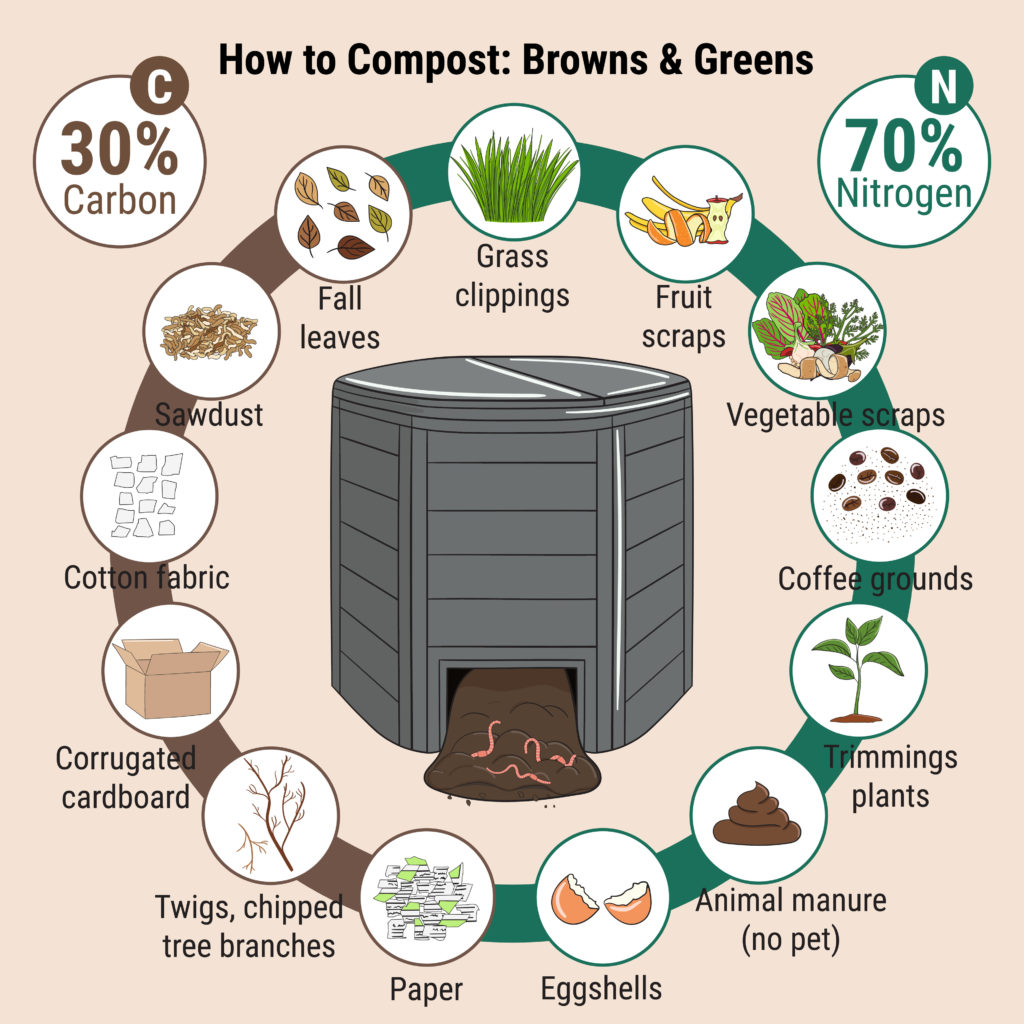Gardening for Health

Composting is For Everyone
By Maria Price
One of the main things that I hope to accomplish by writing this column is to encourage everyone who can, to compost. Making compost for your garden is one of the best recycling activities you can do.
There’s no guarantee that a lot of the plastic we put in our recycling containers gets recycled into something. Making compost for your garden is a sure way to recycle important organic materials right in your yard.
You can enrich your soil, reduce the amount of fertilizer you need to add to your garden and reduce what goes into the landfills by composting your organic waste. I keep a compost bucket on my kitchen counter for food waste and once a day carry it out to my compost pile. It has a lid so there is no odor.
When I come across a product that makes gardening easier, I want to tell people about it. Garden Alive offers a compost bin called the Munchie 65. You toss in your organic matter and forget about it with no turning necessary. I think turning a traditional compost pile deters some people, especially older people, like me, from starting a compost pile. This composter can make up to 65 gallons of compost. It’s black and obscure for better heat retention. The open bottom allows earthworms and microorganisms to speed the composting process. It has four doors so compost can be accessed from all sides. It has ventilation holes for good airflow. The lid lifts off for easy filling and snaps tightly shut. It is made with 80 percent post-consumer recycled materials and is BPA- and phthalate-free. It measures 30¾ inches high by 26 inches wide and 26 inches deep. It costs $149.99 from gardensalive.com or 513-354-1482.
You can easily spend that much buying fertilizer and soil amendments for one growing season as opposed to creating your own compost.
Remember when you make compost, you want to alternate greens and browns. The greens include lawn and garden clippings that are nitrogen-rich. Kitchen waste, like fruit and vegetable peels, rinds, tea bags, coffee grounds, and eggshells.
Manure from rabbits, goats, sheep, cows, and horses can be part of your compost as these are all herbivore animals. Never use dog or cat feces in compost, because they can carry diseases that infect humans. Do not compost meat, bones, or fatty food waste that can attract pests.
The brown materials include dry straw, untreated paper, dried weeds, leaves, dried garden waste, cardboard, wood chips, and sawdust. These are all high in carbon and help with texture and aeration. Never use chemically treated wood products. Adding about 1,000 earthworms will promote the generation of microbes, aerate the pile and leave behind castings, which help fertilize plants. Your garden will love it.
If you are interested in buying ready-made compost and supporting an important regional nonprofit, Annapolis Green has announced its spring “secret sauce” compost sale, March 11-13. Buy it in 15-pound bags at K&B True Value on Forest Drive in Annapolis for $10.
If you live within the Annapolis city limits, you can contribute your kitchen scraps for composting at Truxtun Park, just past the ball field and the skatepark. Learn more at annapolisgreen.com.
